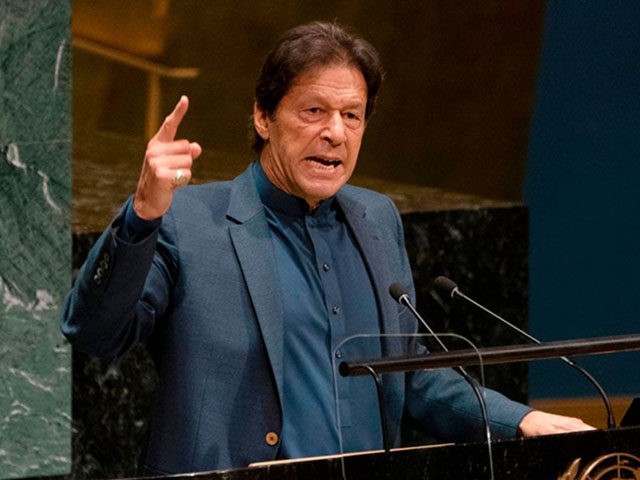Pakistani Prime Minister Imran Khan this week responded to a rise of sexual violence in the country by arguing that rapists should face chemical castration or public hanging.
Khan made the comments during an interview on Monday in response to a question about a recent motorway gang-rape case that caused widespread anger around the country and brought questions of sexual violence into focus.
The 67-year-old former cricketer said he was “shocked” to learn of the rising number of sex crimes and admitted the motorway incident had “shaken the entire nation” because the victim could have been anyone’s sister or daughter.
“Rapists should be given exemplary punishments,” he said, adding child abusers to the list. “In my opinion, they should be hanged at the chowk [public square].”
Khan admitted that having discussed the possibility with his advisors, handing out such punishments would affect Pakistan’s trade relationships with other countries.
“Unfortunately, when we had the discussion, [we were] told it would not be internationally acceptable,” he said. “They said the GSP-Plus trade status given to us by the European Union will be affected.”
The Pakistani premier did not rule out the possibility of “chemically or surgically” castrating rapists, pointing out that this is a law enforced “by many countries.”
“We need fresh legislation to permanently sterilize such [criminals],” he argued. “World history tells when you increase fahashi (vulgarity) in the society, two things happen: sex crimes increase and the family system breaks down.”
Khan, who rose to power on the back of support of hardline Islamists, added that he believed Pakistan’s pro-Sharia society meant that the country was less susceptible to sex crimes, unlike in neighboring India where allegedly obscenity in Bollywood has led to New Dehli becoming the “rape capital” of the world.
Compared with Hollywood and most international film studios, Bollywood is relatively family-friendly. Films generating popular controversy, particularly in the event that they offend Hindu sensibilities, have resulted in riots and attacks on theaters in the past. Despite the lack of adult content in the vast majority of Bollywood films, Pakistan banned all Indian television and radio networks in 2016.
“Compared to the West, our family system is intact,” he explained. “We can fix our justice system and the institutions but if our family system breaks down, we will not be able to rebuild it.”
Khan, who has traded in his reputation as a glamorous sporting legend to spearhead a pro-Islamist campaign for the prime ministership, has developed a reputation for outlandish comments. At his last appearance before the United Nations General Assembly in 2019, Khan blamed the September 11, 2001, jihadist attacks for an alleged global rise in Islamophobia and insisted that radical Islam does not exist: “There is no radical Islam. There is only one Islam.”
More recently, Khan described the architect of the 9/11 attacks — former al-Qaeda chief Osama bin Laden, found to be hiding in a Pakistani suburb — as a “martyr.”
“For Pakistanis across the globe, it was an embarrassing moment when the Americans came and killed Osama bin Laden at Abbottabad … martyred him,” Khan said in June.
Khan has also repeatedly compared modern India to Nazi Germany for its policies in disputed Kashmir and expressed a desire to emulate Chinese dictator Xi Jinping in carrying out a purge against high-ranking politicians.
Despite Khan’s concerns about violating international law and trade relationships, Pakistan still has an appalling human rights record, particularly concerning violence against women and the imposition of blasphemy laws against religious minorities. Last week, for example, a court in the eastern city of Lahore sentenced a Christian man to death on charges of sending “blasphemous” text messages to a former supervisor at a garment factory where they both worked.
“Blasphemy-related violence against religious minorities, fostered in part by government persecution and discriminatory laws, is frequent,” notes the New York-based organization Human Rights Watch. “Authorities have failed to establish adequate protection or accountability for abuses against women and girls, including forced marriage and so-called honor killings.”
Follow Ben Kew on Parler, Facebook, or Twitter. You can email him at bkew@breitbart.com.

COMMENTS
Please let us know if you're having issues with commenting.